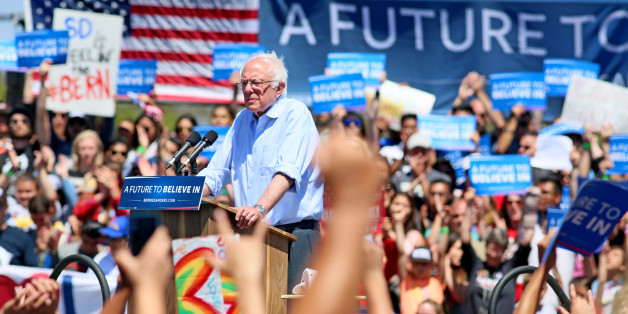America Doesn’t Need Another Franklin Delano Roosevelt, It Needs Another Millard Fillmore

Tags: USA
America Doesn’t Need Another Franklin Delano Roosevelt, It Needs Another Millard Fillmore published by Evanvinh
Writer Rating: 5.0000
Posted on 2016-05-23
Writer Description: Evanvinh
This writer has written 733 articles.
The optimism of Bernie Sanders’ latest viral video belies the fact that what we need is another politician like our under-valued 13th President, Millard Fillmore.
Much has been made by the majority of American Democrats under 45 who support Bernie Sanders of recent comparisons between the Vermont Senator and Franklin Delano Roosevelt — the American President who won World War II and authored “The New Deal,” an economic plan that shepherded America from the Depression to its most productive and prosperous decades.
The superficial similarities between the two men, which almost exclusively relate to their economic policies and support for new forms of diplomacy abroad — Roosevelt having been instrumental to the creation of the United Nations — was, frustratingly, only bolstered when the world’s foremost left-leaning economist, Thomas Piketty, said recently that “Sanders’ success today shows that much of America is tired of rising inequality...and intends to revive both a progressive agenda and the American tradition of egalitarianism.” The lavish praise was bad enough, but the comparisons to Roosevelt, again superficially reasonable due to the two politicians’ synchronicity in most areas of public policy, dangerously misunderstand what America needs in this time of economic and international crisis.
As pointed out in the excellent 2015 essay “Incrementalism Versus Disjuncture,” written by Marc Landy and published in the Tulsa Law Review, the nation’s roster of “forgotten” Presidents — which includes William Henry Harrison, who died just days into his term, but also the understated Fillmore, who resisted efforts by fellow Whigs to dictate his executive appointments — suggests that sometimes uninspiring and uncharismatic Presidents can have much more impact than we anticipate they will.
While Landy ultimately rejects the theory that incrementalist Presidents are preferable to ones who are ideologically counter-institutional (as he notes, “Overall, one is struck by how little the Forgottens contributed to the development of the presidency as compared to the Remembered”), his analysis of the nation’s least-heralded Presidents underscores that sometimes what is wanted is a cautious bureaucrat whose sense of the possible is decidedly modest even by contemporary standards.
There has been an assumption that if America were to demand a “New New Deal” from its government, one that again deployed spending and legislative strategies which were historically transformative for the nation in ways now considered almost entirely positive, it would likewise achieve the same result today. Yes, it might, but why take the chance that it won’t and we come right back to where we started? As things stand now, approval ratings for Congress are at acceptable levels, legislation to rename post offices or other government buildings often achieves bipartisan support, and only a minority of Congressional races are competitive — one of the major pluses of gerrymandering, as when too many Congressional districts can be contested every two years it makes the citizens of these districts restless and even intemperate.
Far better than any President of the period from 1842 to 1856, Millard Fillmore knew how to deal with restlessness. When Lajos Kossuth, a leader of the failed Hungarian Revolution, demanded that the U.S. recognize Hungary’s independence, the demand electrified Americans from Maine to California — a sense of unease that Fillmore quite adequately quelled by refusing to change American policy toward the Eastern European nation. Would Bernie Sanders have had that level of foresight? There’s nothing in his twenty-five year Congressional record, nor indeed anything in the three terms Roosevelt was in the White House, to suggest either man would have reaffirmed America’s neutrality toward Hungary in the highly charged atmosphere of 1851.
But you know who would have reaffirmed America’s neutrality toward Hungary, and done so with the appropriate pomp and caution? Hillary Clinton. And that’s exactly the sort of understated but in a certain way bold incrementalism America needs right now. Bernie Sanders might appear to most American Democrats under 45 and several of the world’s foremost economists — Piketty being just one example — like the Second Coming of FDR, but what America really needs to ask itself is, was FDR really so great? If you think about it, it seems absolutely clear what the answer to that is.
Sources: https://youtu.be/30kl5D5nUNA
You have the right to stay anonymous in your comments, share at your own discretion.


